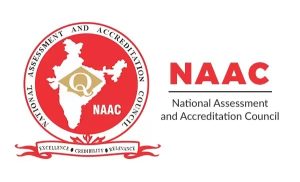On 16th – 18th February, the Appellate Body of the WTO organized WTO@20 Conference in collaboration with NLUD. The event saw the participation of several Appellate Body members of the WTO, most prominently Mr Ujal Singh Bhatia, the current Chairperson. Leading Academicians, International Lawyers, Diplomats and Policy Makers attended the Conference.
The Conference started with a keynote address by Mr Arvind Subramaniam, Chief Economic Advisor to the Government of India. He elucidated on the current state and prospects of the multilateral trade regime in the context of India. Following this, the inauguration featured a roundtable discussion focusing upon the topic, “The new global politics: Is there space for multilateralism?”. This roundtable set the tone and tenor for the discussions of the two day conference by inviting diverse perspectives from the distinguished panel.
Day 1 (17th February 2016): Drawing from the inaugural events, the first panel addressed the role of the WTO in intellectual property governance. Panelists, noting the prominence of TRIPS in the employment of the Dispute Settlement Mechanism, elaborated on the challenges and the opportunities presented by the TRIPS Regime. The second panel focused on the evolution and challenges posed by trade remedy disputes at the WTO. The panel impressed upon the nuances of the WTO Dispute Settlement Model, with particular emphasis on its efficacy and reliability given trade asymmetries. The next panel carried the conversation forward by looking at the participation of developing countries in the WTO system. The panel put special emphasis on data relating to the participation, drawing lessons to be learnt in increasing developing country agency at the WTO. The final panel for the day looked at the rise of services and its scope within the WTO Regime. Complementing economic growth trajectories and the share of services with elaboration upon the extent of flexibility offered by the TRIMS regime, the panel shed light on the growing importance of services.
Day 2 (18th February 2016): The first panel for the day focused on the dispute settlement mechanism of the WTO with its place in global governance. The complex relationship of multilateral and bilateral treaties to the WTO regime were discussed keeping in mind the resurgence of protectionist politics across the globe. A narrative noting the presence of an opportunity within the proliferation of fear in the global space was given definite shape through the comparative evaluations of different models, including questions of legitimacy and participation. The final panel of the Conference concerned non-trade concerns at the WTO. The embedded nature of trade with important concerns like health, human rights, public morals etc was recognized. Panelists reflected upon the growing importance of non-trade concerns at the WTO as signs of maturity within the WTO. This also brought an eventful reflection as to the concerns raised through the diverse sessions as to the future of the WTO.





